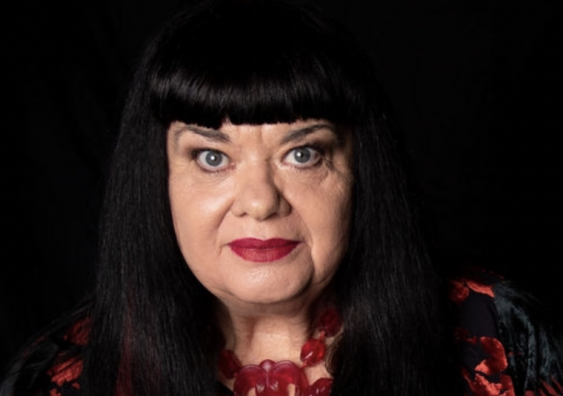The Emmy caps an eventful year for the Sydney artist, who began 2020 advocating for stronger leadership on climate change.

UNSW Art & Design alumna and climate change advocate Lynette Wallworth says it's rewarding to see the positive effect virtual reality films have on audiences. Photo: Lauren Orrell.
The Australian Human Rights Institute's first Artist in Residence, Lynette Wallworth, has won a second Emmy award for a documentary on the first female shaman of the Yawanawa people of the Brazilian Amazon.
The Virtual Reality (VR) film Awavena came about when Ms Wallworth met Amazonian Chief, Tashka Yawanawa, who compared the VR technology to traditional visioning medicine and invited the Sydney filmmaker to the Amazon to tell the story of Shaman Hushahu.
The ability of Ms Wallworth's work to transport its audience has been recognised in many awards including two AACTA awards, a UNESCO award and an Emmy in 2017 in the same category, for the short documentary Collisions.
The Emmy caps an eventful year for the alumna of UNSW Art & Design, who began 2020 advocating for stronger leadership on climate change against the backdrop of Australia's worst-ever bushfire disaster.
In January, her powerful challenge to world leaders and heads of industry meeting to discuss climate change at the World Economic Forum Annual Meeting in Davos was heard around the world when her speech to accept the 26th annual Crystal Award went viral.
It's a challenge for creatives and scientists alike to help explain these global challenges, and show the connectedness, she says.
"One of the things that's happened with the pandemic is that it has nation by nation, state by state, drawn our focus away from the need to respond to climate change with urgent global initiatives, and that's an enormous worry," Ms Wallworth says.
"I'm interested in how we make the connection between these two major unfolding dramas, accepting that both global issues demand urgent attention for our survival."
While good filmmaking can shed light on difficult subjects, VR filmmaking has the ability to help the viewer understand the subject by experiencing it.
Wallworth's work with the Australian Human Rights Institute will explore how VR can be used to uphold the human rights of the dying - a theme the artist regularly revisits.
It is rewarding for Ms Wallworth to see the effect that VR films can have on audiences.
One of these moments was showing Collisions at the UN in Vienna to signatories of the Comprehensive Nuclear Test Ban Treaty, some of whom were yet to ratify the treaty. The film is a virtual reality journey to Western Australia's Pilbara desert. It is the story of Martu elder Nyarri Morgan who witnessed an atomic test in the 1950s, pre-contact.
Ms Wallworth remembers entering the heavy doors marked "Closed Meeting of the Eminent Persons Group" and handing VR headsets to dignitaries including the UN weapons inspector Hans Blix.
"He said: 'To most people, a nuclear test is an abstract concept, but this allows you to experience it. We need tools like this'," Ms Wallworth says of VR.
"When something goes from concept to sensation, especially a visceral sensation as it does with VR, it's held in the body. If it's done well enough it will become a memory that doesn't fade. Then you make the leap of imagination and create the possibility that a person might think a different thought and make a different decision."
Ms Wallworth was awarded the 2020 UNSW Alumni Award for Art & Culture. Awevena is available for download.






